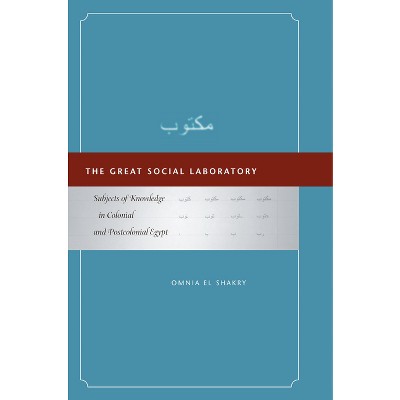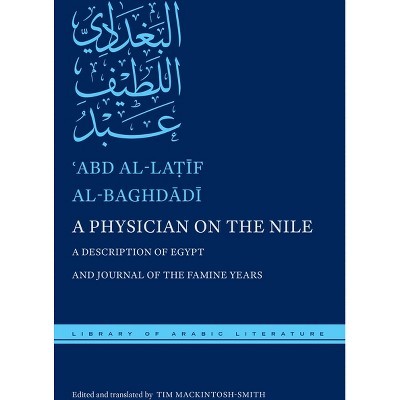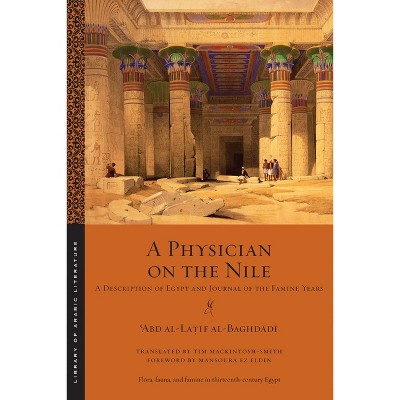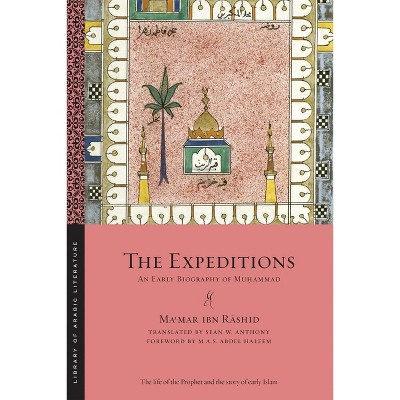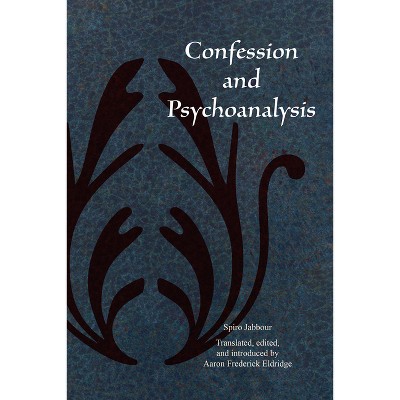Sponsored

The Arabic Freud - by Omnia El Shakry
In Stock
Sponsored
About this item
Highlights
- The first in-depth look at how postwar thinkers in Egypt mapped the intersections between Islamic discourses and psychoanalytic thought In 1945, psychologist Yusuf Murad introduced an Arabic term borrowed from the medieval Sufi philosopher and mystic Ibn 'Arabi--al-la-shu'ur--as a translation for Sigmund Freud's concept of the unconscious.
- About the Author: Omnia El Shakry is professor of history at the University of California, Davis.
- 224 Pages
- History, Middle East
Description
Book Synopsis
The first in-depth look at how postwar thinkers in Egypt mapped the intersections between Islamic discourses and psychoanalytic thought
In 1945, psychologist Yusuf Murad introduced an Arabic term borrowed from the medieval Sufi philosopher and mystic Ibn 'Arabi--al-la-shu'ur--as a translation for Sigmund Freud's concept of the unconscious. By the late 1950s, Freud's Interpretation of Dreams had been translated into Arabic for an eager Egyptian public. In The Arabic Freud, Omnia El Shakry challenges the notion of a strict divide between psychoanalysis and Islam by tracing how postwar thinkers in Egypt blended psychoanalytic theories with concepts from classical Islamic thought in a creative encounter of ethical engagement. Drawing on scholarly writings as well as popular literature on self-healing, El Shakry provides the first in-depth examination of psychoanalysis in Egypt and reveals how a new science of psychology--or "science of the soul," as it came to be called--was inextricably linked to Islam and mysticism. She explores how Freudian ideas of the unconscious were crucial to the formation of modern discourses of subjectivity in areas as diverse as psychology, Islamic philosophy, and the law. Founding figures of Egyptian psychoanalysis, she shows, debated the temporality of the psyche, mystical states, the sexual drive, and the Oedipus complex, while offering startling insights into the nature of psychic life, ethics, and eros. This provocative and insightful book invites us to rethink the relationship between psychoanalysis and religion in the modern era. Mapping the points of intersection between Islamic discourses and psychoanalytic thought, it illustrates how the Arabic Freud, like psychoanalysis itself, was elaborated across the space of human difference.From the Back Cover
"A much-needed addition to modern Arab intellectual history. El Shakry rebuts the binary opposition between a Western, liberating, and modern psychoanalysis and a local, traditional, and constraining Islam."--Elizabeth Suzanne Kassab, author of Contemporary Arab Thought
"El Shakry brings to light figures who are virtually unknown to an American audience--from Yusuf Murad to Muhammad Fathi--while focusing on topics that have been subjects of intense debate in recent years: the relation between Islam and Western culture and the role of religion in the formation of the self."--Ruben Gallo, author of Freud's Mexico
Review Quotes
"Shortlisted for the Sheikh Zayed Award, Abu Dhabi Arabic Language Centre"
"The Arabic Freud . . . offers a richly researched intellectual history of an encounter between psychoanalysis and Islam which took place in Egypt over the 1940s and 1950s . . . . El Shakry recuperates these thinkers not simply as objects of historical inquiry, or as mere products of their political context, but producers of theory in their own right, whose arguments and ideas can enrich and expand our understandings of the self and the other, intuition and ethical cultivation, and psychoanalysis and Islam, today."---Chris Wilson, History of the Human Sciences
"The Arabic Freud masterfully excavates the neglected archives of psychoanalysis in mid-twentieth century Egypt."---Fadi A. Bardawil, Immanent Frame
"A fascinating exploration into the forgotten world of psychology and psychoanalysis in post-Second World War Egypt. . . . El Shakry's book enables us to expand our knowledge of Arab and Islamic intellectual history and forces us to examine our notions about contact points between modern and pre-modern thought."---Usman Butt, New Arab
"El Shakry's Arabic Freud is a valuable contribution to the history of modern Egypt, Arab intellectual thought, and the global history of ideas."---Wilson Chacko Jacob, Journal of Arabic Literature
"It is an extraordinary study of post-colonial thought and of the history of psychology, which takes seriously psychoanalytic thought produced in a non-western society. . . . El Shakry uniquely uses psychoanalysis to examine the continuities and ruptures of post-colonial thought. . . . It is not merely a contextualization of Egyptian readings of psychoanalysis, but also a profound philosophical engagement with the implications of this intellectual encounter."---Liat Kozma, Psychoanalysis and History
"The greatest strength of El Shakry's study lies in the way she brings discourses of modernity and pre-modernity together, exploring the traces of each in the other. This is a deliberate rhetorical strategy on her part, which yields far deeper and more meaningful insights than the traditional method of separation of premodern and modern."---Marsha Aileen Hewitt, Reading Religion
About the Author
Omnia El Shakry is professor of history at the University of California, Davis. She is the author of The Great Social Laboratory: Subjects of Knowledge in Colonial and Postcolonial Egypt and the editor of Gender and Sexuality in Islam.





